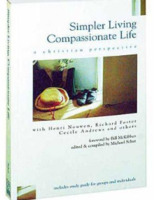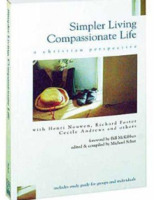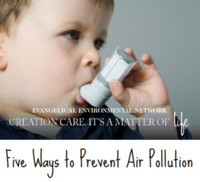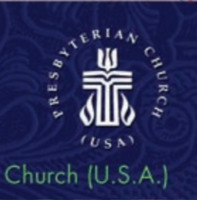Search
249 items
-
Podcast: Young Minds Big Questions – An Interview with Brian McLaren
“Climate Change and Christianity – An Interview with Brian McLaren” was released on April 26, 2017, and is the first part of a two part conversation on climate change and Christianity. The interviewee, Brian McLaren is an author, speaker, activist, and public theologian. His work as a pastor led him to begin writing, and he has published numerous books on faith and Christian life.
McLaren unpacks some of the science behind global climate change and its everyday effects for human life around the world. Looking at the dangers of a changing climate, he turns to faith as the inspiration for advocacy and change. Ultimately, McLaren attributes reluctance to accept or take action to prevent climate change, in part, to a certain kind of eschatology. He then mentions instances in which congregations, inspired by care for God’s world, made real changes to combat climate change. The podcast concludes with McLaren’s own recommendations for any Christian wanting to learn more about creation care. -
"Theology in Support of Simplicity and Eco-Justice" in Simpler Living, Compassionate Life
Simpler Living, Compassionate Life, is a book from Earth Ministries that consists of both essays and community guides regarding humanity’s relationship to our earthly home. This section, "Theology in Support of Simplicity and Eco-Justice," captures the Biblical and faith inspired foundation of the movement toward simplicity. It encourages those who are participants in a culture of over-consumption to reconsider their lifestyles and reverse the damage done to the gift that we have received. -
"Social Structures and the Politics of Simplicity" in Simpler Living, Compassionate Life
Simpler Living, Compassionate Life, is a book from Earth Ministries that consists of both essays and community guides regarding humanity’s relationship to our earthly home. This section, "Social Structures and the Politics of Simplicity," looks at systems in society that perpetuate and encourage over-consumption. From theology to capitalism to advertising, authors call out ways in which we have built our world for destruction. It focuses not only on personal choices, but the necessity of engaged politics and policy. For the full version Moriah Reichert's review of this section of the book, visit the link below. -
Profile: John B. Cobb Jr.
John B. Cobb is an American theologian working in ecology and creation care. The prolific author of more than fifty books has argued inside the church and the academy for faith inspired environmental action. He began writing on faith and environmentalism in the 1970s and has remained a prominent activist and theologian through his life. In 2014, Cobb’s accomplishments were celebrated when he was inducted into the American Academy of Arts and Sciences.
Cobb and his students put together an early Ecotheology book list, current through 1991. Cobb’s speeches and works can be found online, and his books can be found at many major retailers and your favorite independent bookstore. -
Justice for Each Generation
Justice for Each Generation started with the landmark case, Juliana v. U.S. Twenty-one youth had filed a lawsuit against the United States government for its role in causing climate change and violating their right to life, liberty, and property, while also failing to protect essential public resources. They are calling for sermons from youth and adults of all faiths as a collective statement that sends a signal to the rest of society. -
Pope Francis and Environmental Leaders Forge Vision for Global Action
Environmental leaders, activists and advocates gathered with Pope Francis for a two-day Vatican-organized conference with hopes to emerge with a shared vision for protecting our planet. The conference was inspired by the third anniversary of the Pope’s encyclical and was attended by political and religious leaders, scientists, economists and heads of civil society organizations. Inspired by the call for unity and action in the encyclical, UN Environment also introduced their Interfaith Rain-forest Initiative at the conference. -
Church of England to Divest from Companies that Neglect Paris Agreement Goals
The Church of England will divest its $16 billion fund from companies that are not aligning themselves with the goals of the Paris Agreement. The decision, which passed by a majority of 347 to 4 votes, states that the church will sell its stakes in companies that do not taking steps towards climate goals by 2023. The website of the Church of England offers the following message: “We believe that responding to climate change is an essential part of our responsibility to safeguard God’s creation. Our environmental campaign exists to enable the whole church to address—in faith, practice and mission—the issue of climate change.” -
Five Ways to Prevent Air Pollution
Evangelical Environmental Network Moms (EEN Moms) provide this information sheet, urging individuals to take action in areas that might seem overwhelming and/or too difficult to change. This message by EEN Moms focuses on air pollution. Small action/steps taken by everyone can add up to make significant changes to the quality of air for our planet. -
Leadership Meeting Guide – Breathe Free and Easy
Evangelical Environmental Network MOMS strive for pollution free air for everyone around the globe. They believe that clean air is a fundamental gift from God (Genesis 1). Even in the United States, there are still people fighting for clean air. This resource provides a video and discussion questions about how mothers can make a difference and advocate for healthy, clean air for all. The guide can be downloaded for easier use at meetings as well. -
Evangelical Environmental Network: The Last Straw
Up to 12 billion tons of plastic trash end up in God’s oceans. Evangelical Environmental Network (EEN) maintains that trash is an affront to the glory of God. Trash eventually ends up someplace, and that someplace belongs to God. In order to put a stop to this waste, EEN has created The Last Straw Campaign Pledge. This pledge urges individuals to decline straws at restaurants and other food/beverage establishments, and avoid purchasing for home use. Additional steps of advocacy that one can take include asking local restaurants to only provide straws when customers request them and asking elected officials at the local and state levels to phase out the use of plastic straws, and single-use plastic. -
Season of Creation Week 2: Climate Change: A Challenge, Our Concern
For each week of the Season of Creation, the World Council of Churches offers a resource for celebrating creation. The second week of the Season of Creation is focused on climate change and the challenge of responding to Pope Francis’ call to care for creation. This document contains a hymn, a call to repentance, a responsive reflection, and an intercession. -
Season of Creation Week 1: A Culture of Relationships That Heals our Throwaway Culture
For each week of the Season of Creation, the World Council of Churches offers a resource for celebrating creation. The first week focuses on the throwaway culture that society has created and urges individuals to instead focus on just and sustainable practices. The document includes a call to prayer, a scripture reading, a hymn, and a responsive reflection. -
Canadian Ecumenical Document Embraces Christian Concern for Environment
On July 23, 2019, the Roman Catholic-United Church of Canada Dialogue in Canada released "The Hope Within Us," a document that focuses on climate change and ecological degradation. The statement urges Christian churches to put aside their differences and work in communion to acknowledge the downside of progress and greed of our economic and political systems as they negatively impact our environment. -
Columbus Catholic School becomes Designated GreenSpot School
The GreenSpot School designation indicates that a school has taken initiatives to educate their students and staff about sustainability, water issues, conserving energy, reducing waste, and green transportation. St. Mary School Catholic school has become the first in Columbus to earn this designation. They have implemented a recycling program, local garden, and composting, which qualified them to become a GreenSpot School. They have created a short video of students discussing their engagement and staff discussing the impact of becoming a GreenSpot School. -
The Necessity of Environmental Concern
A group of 20 Muslim youths worked to clean up an area in Columbus as a community service event. The event helped one Columbus-area Muslim leader realize that demonstrating concern for the environment is not a luxury, but a necessity. Many people prioritize a number of worldly things ahead of environmental care. Increasingly, faith groups are demonstrating that environmental concern and care needs urgent attention throughout the world. -
Giving Back to the Community on Earth Day 2016
This year on April 22 for Earth Day, many organizations are working in conjunction with Metro Parks Officials to clean up five parks within the Columbus area. Leaders hope to encourage involvement of congregations within local communities. A day of services can be a great teaching moment as well as an opportunity to give back. -
Earth Day statement from ELCA presiding bishop
The Reverend Elizabeth A. Eaton, Presiding Bishop of the Evangelical Lutheran Church in America (ELCA), issued an Earth Day statement on behalf of the ELCA. A salient excerpt from the statement is shown below:
"The effects of the warming climate are felt in nearly every corner of the globe. These include increased migration, food insecurity due to changing agricultural landscapes, national security issues and health problems. As bad as it is for all creation, the most vulnerable people around the world are suffering the most. Yet they have contributed the least and, as noted in the United Nation's 2030 Agenda for Sustainable Development,[iii] are ill equipped to adapt to or mitigate the effects of a changing climate to build resilient communities." -
Presbyterians and Climate Change
This article posted on Yale Climate Connections discusses grassroots efforts of Presbyterian organizations, and notes specific time frames of salient Presbyterian accomplishments with regard to climate change. The following excerpt provides a general overview of their goals and mission:
"Presbyterians are engaged in many activities to combat climate change, from Earth Forums to hunger programs addressing food and climate crises and protests against practices that encourage reliance on coal. Since 2010, the Presbyterian Church has given 80 congregations an Earth Care Congregation Certification for demonstrating a strong commitment to environmental care." -
PC(USA) Collaborative Agenda on Environmental Stewardship
Chief executives of the six churches of the Presbyterian Church (U.S.A.) provide their rationale for creating the Collaborative Agenda on Environmental Stewardship:
"Noting the deep concern about urgent environmental challenges expressed by many commissioners at the 221st General Assembly (2014), chief executives of the six agencies of the Presbyterian Church (U.S.A.) appointed a working group to develop a joint response. The group consisting of at least one staff member per agency—was asked to craft a positive statement of what each agency, and the agencies together, have done and plan to do regarding environmental stewardship. This document is designed to call attention to ongoing efforts by the PC(USA) to confront the underlying causes of climate change, and to resources available through the six agencies to congregations, mid councils, and other mission and ministry groups wishing to join in the effort. The working group, meeting together regularly over a period of nine months, has produced the following document— 'Collaborative Agenda on Environmental Stewardship.' It has been reviewed by each of the agency boards, which have each endorsed the document as a whole and recommended that the General Assembly also endorse it as a helpful resource to the whole denomination. This effort is particularly noteworthy as it is unusual for an item of business to come to the assembly from a collaboration of all six agencies." -
Blessed Tomorrow - Caring for Creation Today - Commitment to Act on Climate Change
The Presbyterian Church acknowledges that burning fossil fuels can cause irreparable damage to the Earth and to humans, with a disproportionate impact on the poor and vulnerable, and advocate instead for cleaner energy sources. They emphasize that care for creation is not a political, economic, or scientific issue, but rather a moral responsibility laid before us by God. For this reason, they are partnering with Blessed Tomorrow, to facilitate the creation of new tools and guides that will help to create a more sustainable future. -
Solar
The Presbyterian Church has put forth the following webinar, providing some suggestions for both individuals and congregations to utilize cleaner sources of energy and reduce costs. The introduction is to the webinar is shown below:
"As the realities of climate change present an ever increasing urgency to our need to act faithfully in our energy consumption, many Presbyterians are exploring ways to support, purchase, and share renewable energy resources as an alternative to fossil fuel energy. From Presbyterian congregations drawing interest from the passers-by that notice solar panels on their rooftops, to a Presbyterian teen purchasing solar panels to charge his electric lawnmower (part of his carbon-neutral lawn-care service), the time is ripe to explore the options of solar energy as part of our Christian discipleship." -
Climate Change
The Presbyterian Church has put forth this video on care for creation, emphasizing that Christ has called us to go out into the world to care for creation and our fellow humans, especially the poor. The Union of Concerned Scientists has identified food, transportation, and energy as three key areas of focus to help stem climate change Congregations can help by implementing energy saving techniques, participate in recycling and composting waste, teaching children to grow food, and incorporating salient creation care concepts within educational settings. -
The Power to Change
The 218th General Assembly of the Presbyterian Church U.S.A. (PCUSA) has put forth this resolution on energy and climate change as a resource for both individuals and entire congregations. Topics at the forefront of the report include: global warming, eco-justice norms, energy guidelines, non-renewable energy sources, and alternative and renewable energy sources. The final section includes resources for education, action and advocacy. -
Hazardous Waste, Race, and the Environment
This statement was approved by the 207th General Assembly Presbyterian Church (U.S.A.), 1995. The predominant theme focuses on the impact that hazardous waste has on individuals who are suffering from poverty and minority groups. The final section provides suggestions for taking action. -
Restoring Creation for Ecology and Justice
This report was adopted by the 202nd General Assembly (1990) Presbyterian Church (U.S.A.). Their Committee on Social Witness Policy urges the assembly to adopt specified policies within the document. The report covers of multitude of critical environmental issues, with sound policy recommendations and actions that congregations can take to support the myriad of sustainability issues.

























